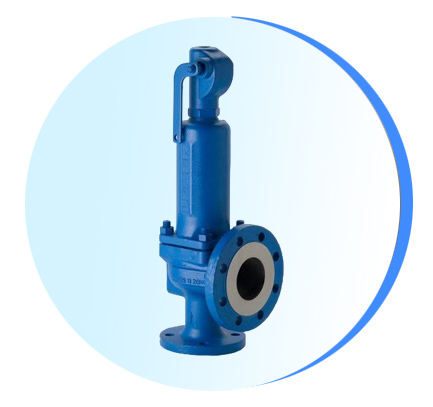
Pawar Industries is leading Manufacturers in Safety Valves
Safety Valves are critical components used in industrial applications to protect equipment, systems, and personnel from overpressure conditions. They play a crucial role in maintaining safe operating conditions by automatically relieving excess pressure when it exceeds a predetermined setpoint. Safety valves offer several advantages and have specific specifications to ensure optimal performance.
Advantages of Safety Valves -
Safety valves provide numerous benefits, making them essential in industries that require reliable overpressure protection. Some key advantages include:
Safety valves prevent equipment damage by relieving excess pressure, ensuring the integrity and longevity of vessels, pipelines, and other critical components. They protect against catastrophic failures caused by overpressure, reducing the risk of expensive repairs or replacement.
Safety valves safeguard personnel by preventing accidents associated with overpressure. They mitigate the risk of explosions, leaks, or other hazardous conditions that could pose a threat to workers' well-being. By providing a safe working environment, safety valves contribute to a culture of safety within industrial settings.
Safety valves maintain optimal pressure levels within systems, enhancing overall efficiency. By preventing pressure buildup, they ensure smooth operation, minimize energy consumption, and improve the performance of equipment and processes.
Safety valves are designed to meet stringent regulatory requirements and industry standards. By incorporating safety valves into industrial systems, businesses can ensure compliance with safety codes, guidelines, and governmental regulations.
Specifications of Safety Valves -
To achieve their intended purpose, safety valves have specific specifications tailored to the requirements of each application. Some key specifications include:
Set Pressure : Safety valves have a predetermined set pressure at which they begin to open and relieve excess pressure. The set pressure is carefully selected based on the system's design, operating conditions, and safety requirements.
Capacity : Safety valves are rated for a specific capacity or flow rate, indicating the maximum amount of fluid or gas they can discharge per unit of time. Capacity is determined by factors such as valve size, orifice area, and the pressure drop across the valve.
Materials : Safety valves are constructed from materials compatible with the fluid or gas being handled and the environmental conditions. Common materials include stainless steel, brass, or special alloys that provide corrosion resistance, strength, and durability.
Reliability and Accuracy : Safety valves must be highly reliable and accurate in their pressure relief function. They undergo rigorous testing to ensure consistent performance, fast response times, and tight shut-off when the set pressure is reached.
Certifications : Safety valves may need to meet specific certifications or standards, such as ASME (American Society of Mechanical Engineers), API (American Petroleum Institute), or ISO (International Organization for Standardization). These certifications ensure compliance with industry-specific requirements and enhance trust in the valve's performance and safety.


